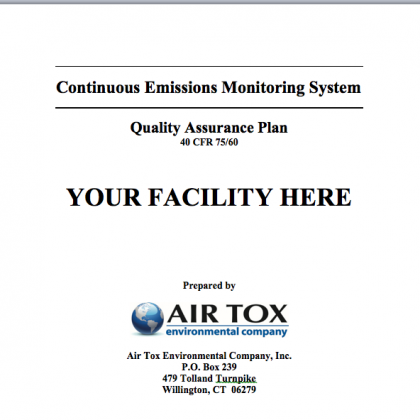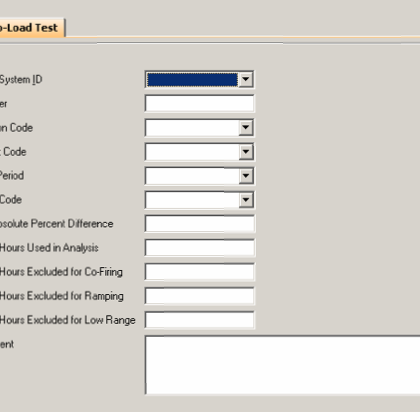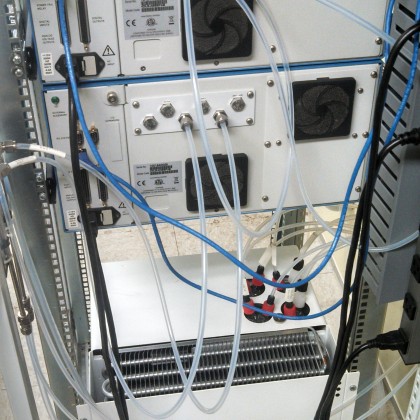28
2015The Guide to CEMS Acronyms
Ever feel like you’re reading a different language when it comes to your CEMS and COMS regulations or permit? Don’t feel uncomfortable any longer! Here is a reference guide that explains the acronyms you need to know to, well, be in the know! BAF- Bias Adjustment Factor (determined in RATA) BTU- British Thermal Unit CAMD- Clean Air Markets Division CEMS- Continuous Emissions Monitoring System…
12
2015
Handy Checklist for you Annual QAQC Plan Review
As required by both 40 CFR 60 and 75, each facility must perform an annual review of their Quality Assurance Quality Control document. With the halfway point of the year quickly approaching, it is imperative that this process is not overlooked. There are a variety of things that need to be taken into consideration when performing this yearly review. Outlined below are items that should…
01
2015
The EPA’s Year Ahead in Air Regulations
There are quite a few major regulations and standards that the EPA has on its agenda for 2015. These are all especially relevant to the Region 1 Area. See below for details: Carbon Pollution Standards for New/Modified/Existing Power Plants Comment period for these proposed regulations has closed. Regulation sets a lbs/MWhr rate limit for each state. States have to meet an interim rate goal by…
01
2015
CT Section 22 Updates
Two subcommittee meetings were held in February and March to discuss the proposed revisions to RCSA 22a-174-22. The topics discussed included Emissions Testing and Compliance. Comment period on the Emissions Testing section is now closed, but comments are open on the Compliance section until April 20th. Below is a summary of the proposed new rule. Emissions Testing Facilities can show compliance with emissions limitations…
19
2015
The Why’s and When’s of Fuel Flow to Load: FFTL Testing
Quarterly Fuel Flow to Load Quarterly reporting under Part 75 (EDR’s) often requires more than just the standard Linearity Tests and RATA’s to maintain compliance. This blog focuses on a fairly simple but easy to overlook test: the fuel flow to load. For every quarter in which a flowmeter accuracy test is not conducted, this test must be run for quality assurance purposes. Compliance…
10
2015
The Why’s and When’s of Fuel Flow to Load: Establishing a Baseline
Establishing a Baseline Fuel Flow to Load Often, QA tests that are not conducted quarterly, or even yearly, are sometimes accidentally ignored. However, their low frequency does not mean they are any less important. The fuel flow to load baseline test is one such QA activity. Since long stretches of time may elapse between tests, it is easy to forget just how this test…
02
2015
Extending the Life of your CEMS Equipment
The replacement cost for CEMS equipment is expensive, and with an average life expectancy of 8-10 years, you want to do whatever you can to extend that. You can add 2, 5 or even 10 years to the life or your equipment with these few simple housekeeping tips: DO YOUR DUSTING…Dust can get into mechanical parts and fans causing things to work harder or overheat….
20
2015
Braving the Elements: Stack Testing in the winter
The forecast is calling for temps around 20F, some wind, and possible snow showers. A good day to stay inside and calibrate those probe TCs, and stay warm with a few espresso breaks in between cals and data entry. But no, the job at hand today is to successfully complete a series of three (3) 2-hour dioxin-furan tests, applying EPA Method 23 on a testing…
18
2014Calibrations–Part 60 vs 75
Calibrations are an integral part of operating a CEM system effectively. However, depending on which regulations your site falls under, this process can be subject to different requirements. It is crucial that you understand these differences, especially if you are a site that is subject to both regulations, in order to maintain compliance and minimize downtime. Below are important ways in which Part 60 calibrations…
11
2014
Tips for Easing the Reporting Process in the Off-Season
Reporting comes only once every three months, so it can be easy to push it to the very bottom of your concerns list once the 30th is over. However, there are many things that can be done during the course of a quarter that greatly facilitate your reporting process once that dreaded month rolls around. The following are simple, time-saving steps that we find very…

